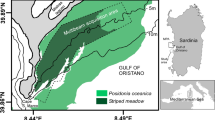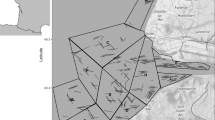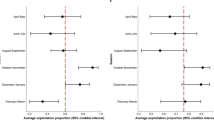Abstract
IN a study of the intensity and distribution of spatfalls of Cardium edule on the Cark sands in More-cambe Bay, it was found that the heaviest falls occur (a) where tidal streams meet—such localities being described locally as 'meetings'—and (b) where banks shelter a stretch of ground from prevailing winds. The heaviest falls occur at about the half-tide level.
This is a preview of subscription content, access via your institution
Access options
Subscribe to this journal
Receive 51 print issues and online access
$199.00 per year
only $3.90 per issue
Buy this article
- Purchase on Springer Link
- Instant access to full article PDF
Prices may be subject to local taxes which are calculated during checkout
Similar content being viewed by others
References
Orton, J. H., “James Johnstone Memorial Volume” (1934).
Davies, F. M., Fish Invest., Min. Agric. and Fish., II, 6, 2 (London, 1923).
Tait, J. B., Fish. Scotland, Sci. Invest., No. 1 (1937).
Orton, J. H., “Oyster Biology and Oyster Culture”, p. 135 (1937).
Savage, R. E., and Hardy, A. C., Fish Invest., Min. Agric. and Fish., II, 14, 2 (1934).
Savage R. E., and Wimpenny, R. S., Fish Invest., Min. Agric. and Fish., II, 15, 1 (1936).
Author information
Authors and Affiliations
Rights and permissions
About this article
Cite this article
ORTON, J. Some Interrelations between Bivalve Spatfalls, Hydrography and Fisheries. Nature 140, 505–506 (1937). https://doi.org/10.1038/140505b0
Issue Date:
DOI: https://doi.org/10.1038/140505b0
This article is cited by
-
Distribution of pelagic larvae of bottom invertebrates of the Norwegian and Barents Seas
Marine Biology (1968)
Comments
By submitting a comment you agree to abide by our Terms and Community Guidelines. If you find something abusive or that does not comply with our terms or guidelines please flag it as inappropriate.



